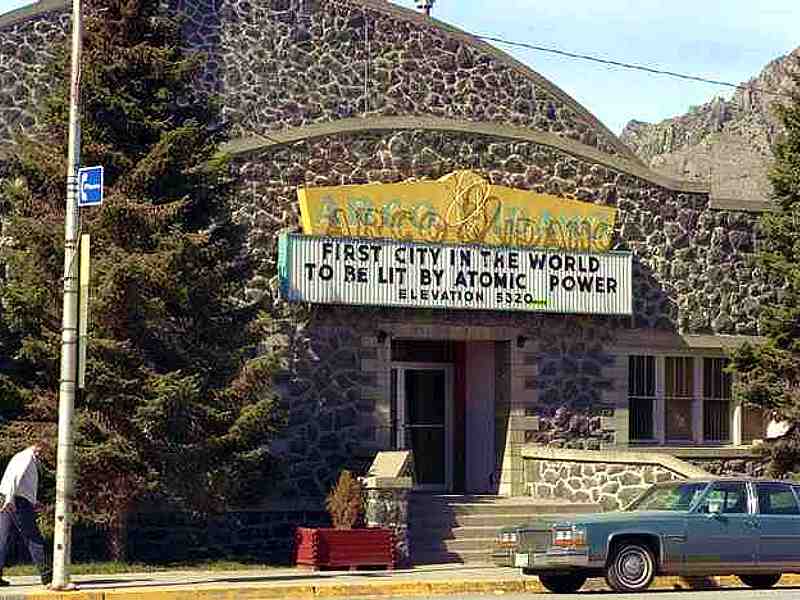Idaho Town Gets Atomic Power and Light
in Nuclear Power Demonstration
City Hall, Main Street, Arco, Idaho

Electricity, produced from nuclear energy, was first used to light and power a town in the United States when Arco, Idaho, became the first community in the Nation to receive its entire supply of power from a nuclear source on 17 Jul 1955. Electricity was produced locally by an experimental nuclear power plant operated by Argonne National Laboratory at the U.S. Atomic Energy Commission's National Reactor Testing Station, twenty miles from Arco. For more than an hour that night, the electrical power from the laboratory was fed into the transmission lines instead of Utah Power and Light supplying the small town.
Although town and power company officials knew of the project, the 1,200 residents of this little east central Idaho ranching center were not aware of it at the time. Before and during the experiment, those involved were sworn to secrecy. Afterwards word of the test spread around the community, though the official press release to the news media was not issued until a month later.
A motion picture record of the demonstration was was made, which was presented at the United Nations in Geneva. Delegates from seventy-two nations were there at the Atoms for Peace conference. On 12 Aug 1955, American scientists announced the results from the experimental power plant, built in the Snake River sagebrush plains 20 miles away from Argonne National Laboratory, which was responsible for its operation. The Associated Press report was carried in newspapers around the United States, and the world learned of the distinction attained by Arco.
Several weeks earlier, there had been another test started in which nuclear-produced electricity was fed into the general system of an electrical utility company. However, in that case it was only by-product power from an experimental submarine reactor at West Milton, New York, that was being utilized, on an interuptible basis, and only served as a supplement to electricity generated by conventional means. By contrast, at Arco, the community had been disconnected from the utility company service during the hour that the electricity generated by the nuclear power plant replaced it.
- Press Release from United State Atomic Energy Commission, Idaho Town Gets Atomic Power and Light in Nuclear Power Demonstration.
- Today in Science History event description of the first day generating electricity at Arco on 17 Jul 1955.




